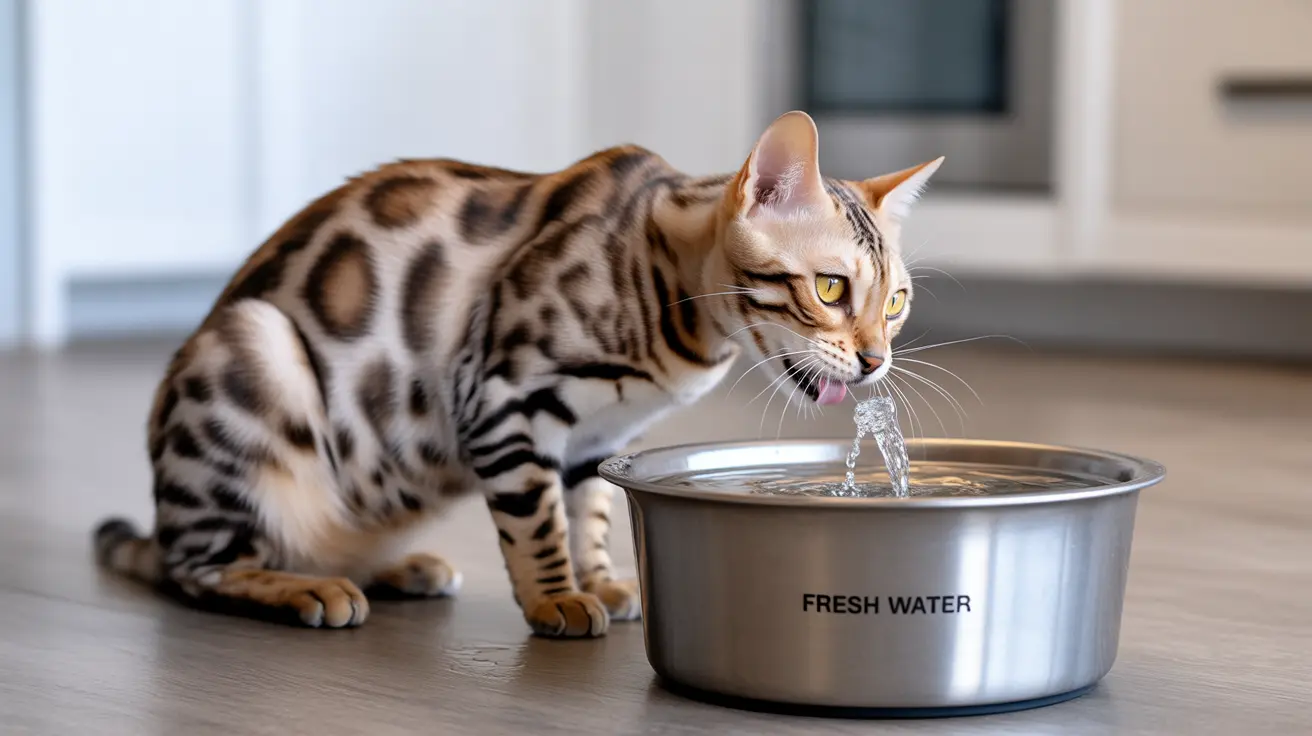Bladder stones in cats can cause serious health issues, from painful urination to life-threatening blockages. Understanding how to prevent and manage these stones through proper diet is crucial for every cat owner. This comprehensive guide explores the essential role of nutrition in preventing and treating feline bladder stones.
Whether your cat has experienced bladder stones or you're looking to prevent them, the right dietary approach can make all the difference. Let's dive into everything you need to know about managing this common feline health concern through proper nutrition.
Understanding Cat Bladder Stones and Their Causes
Bladder stones in cats form when minerals in the urine crystallize and accumulate. The three most common types are struvite, calcium oxalate, and urate stones. Each type requires a different dietary approach for prevention and management.
Several factors contribute to stone formation, including:
- Mineral imbalances in diet
- Inadequate water intake
- Urinary pH levels
- Underlying health conditions
- Genetic predisposition
The Critical Role of Diet in Stone Prevention
A properly formulated diet can significantly reduce the risk of bladder stone formation. The key aspects of an effective prevention strategy include:
Moisture Content
Wet food is strongly recommended for cats prone to bladder stones. The higher moisture content helps:
- Dilute urine concentration
- Increase urination frequency
- Flush out mineral deposits
- Maintain proper hydration
Mineral Balance
Different stone types require specific mineral restrictions:
- Struvite stones: Limited magnesium and phosphorus
- Calcium oxalate stones: Controlled calcium and oxalate levels
- Urate stones: Reduced purine content
Choosing the Right Food for Your Cat
Prescription diets specifically formulated for urinary health offer the most reliable prevention and management options. These foods are carefully balanced to:
- Control mineral content
- Maintain appropriate urinary pH
- Provide adequate nutrition
- Support overall urinary health
Practical Tips for Feeding Success
Implementing dietary changes requires patience and consistency. Here are key strategies for success:
- Transition to new food gradually over 7-10 days
- Maintain consistent feeding times
- Monitor water intake
- Avoid mixing different types of food
- Keep track of urinary habits
Frequently Asked Questions
What types of bladder stones can form in cats, and how does diet affect each type?
The main types are struvite, calcium oxalate, and urate stones. Diet affects each differently: struvite stones respond well to acidifying diets low in magnesium, calcium oxalate stones require controlled calcium and oxalate levels, and urate stones need reduced purine content.
How can I adjust my cat's diet to prevent or manage struvite bladder stones effectively?
Feed a diet specifically formulated to produce acidic urine (pH 6.2-6.4), limit magnesium and phosphorus intake, and increase moisture content through wet food or added water to dry food.
Why is increasing water intake important in preventing bladder stones in cats, and how can I encourage my cat to drink more?
Increased water intake dilutes urine and prevents mineral crystallization. Encourage drinking by providing multiple water sources, using pet fountains, feeding wet food, and adding water to dry food.
Are there prescription diets available for cats with bladder stones, and how do they work to dissolve or prevent stones?
Yes, prescription diets are available and work by controlling mineral content, adjusting urinary pH, and increasing moisture intake. These diets are specifically formulated for different stone types and should be used under veterinary supervision.
Can homemade diets be safe for cats with bladder stones, and should they be formulated by a veterinary nutritionist?
Homemade diets can be safe but must be formulated by a veterinary nutritionist to ensure proper nutrient balance and appropriate mineral content for managing bladder stones.
Conclusion
Managing and preventing bladder stones in cats requires a comprehensive dietary approach. By choosing the right food, maintaining proper hydration, and working closely with your veterinarian, you can significantly reduce your cat's risk of developing these painful conditions. Remember that consistency and regular monitoring are key to long-term success in preventing bladder stone formation.






